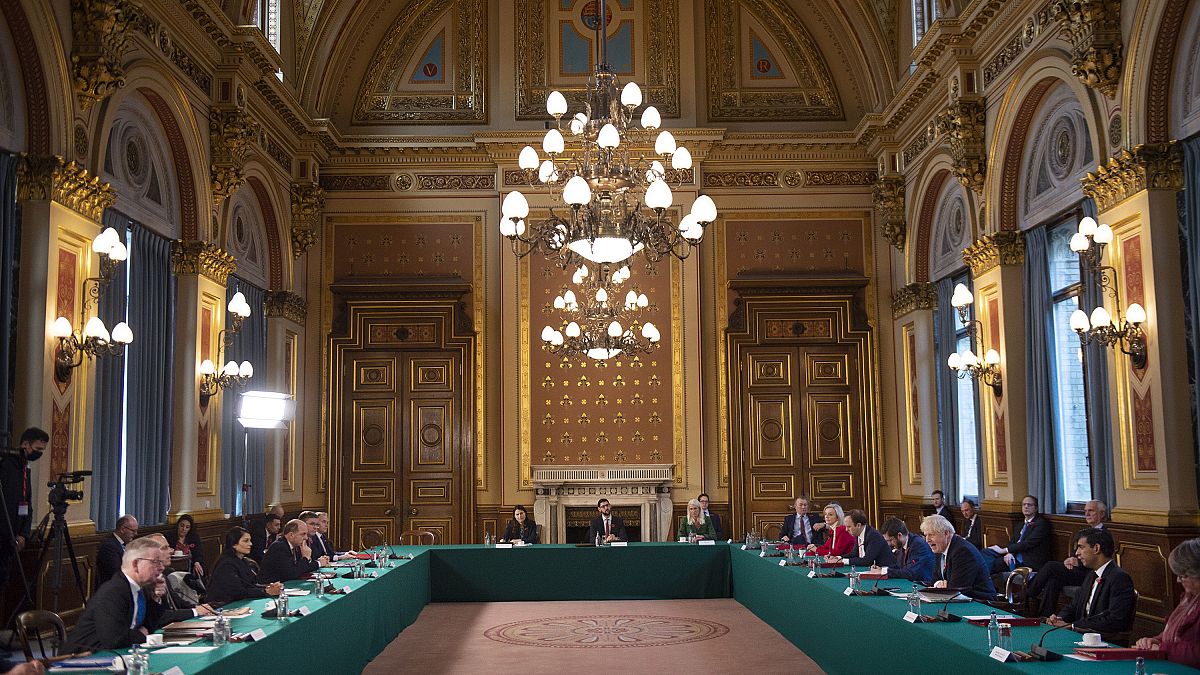The UK is to cut its overseas aid budget, despite warnings from charities and politicians that the move will cost tens of thousands of lives.
Britain's finance minister has confirmed that the UK is to cut its overseas aid budget, despite warnings from charities and politicians that the move will cost tens of thousands of lives.
Rishi Sunak, the Chancellor of the Exchequer, told parliament that the government would abandon its target of spending 0.7% of national income on foreign aid, instead reducing the proportion to 0.5% next year.
The move, which is widely expected to free up about £4 billion (€4.48 billion) for the Conservative government to use elsewhere, has prompted an outcry among charities and a mini-revolt within the UK's ruling party. One junior minister has resigned in protest.
Spending so much on international aid was difficult to justify during a "domestic fiscal emergency" with borrowing so high, Sunak said as he set out the government's spending plans amid the coronavirus pandemic.
At a time of unprecedented crisis the government had to make tough decisions, he said, adding that the UK was still the second biggest aid spender in the G7. The government hoped to return to the target set by Tony Blair's Labour government more than two decades ago, the chancellor added.
Opponents of the reduction in foreign aid have drawn a contrast with the extra £24 billion allocated to defence, as Sunak confirmed on Wednesday.
Some in the Conservative government had argued for a cut in the overseas aid target, but others in the ruling party have spoken out against it.
The move prompted Foreign Office minister Baroness Sugg to quit in protest, saying it was "fundamentally wrong to abandon our commitment" to development.
"Cutting UK aid risks undermining your efforts to promote a Global Britain and will diminish our power to influence other nations to do what is right. I cannot support or defend this decision," she wrote in her resignation letter to Prime Minister Boris Johnson.
Tory MP Andrew Mitchell said the 30% reduction in funding would cause 100,000 preventable deaths, mainly among children. "None of us in this House will be able to look our children in the eye and say we did not know what we were voting for," he said.
Another critic from Conservative ranks, Commons Defence Select Committee chairman Tobias Ellwood, had previously called for the overseas aid budget to be protected, tweeting an article in which musician and activist Bob Geldof called the prospective budget cut "sad, mean and unnecessary pickpocketing of money meant for the weak, the wretched, the poor and the hungry".
"The cut to the overseas aid budget is a political gesture to the right wing of the Tory party, and the price of it will be paid by some of the poorest people in the world. Deplorable indeed," Scotland's First Minister Nicola Sturgeon said on Twitter.
The move has also been criticised by many outside parliament, including several charities and former prime ministers.
Save the Children said it was "deeply disappointed" by the cut and warned that it could mean "100,000 lives not saved by immunization, and a million fewer children supported through education."
Chief executive Kevin Watkins said the government had "broken a promise" to the world's neediest people, and "broken Britain's reputation for leadership on the world stage" ahead of its hosting of the 2021 United Nations Climate Change Conference next year.
The head of the Church of England, Archbishop of Canterbury Justin Welby, tweeted that the cut "is shameful and wrong" and urged lawmakers "to reject it for the good of the poorest, and the UK’s own reputation and interest."
Nobel Prize laureate Malala Yousafzai joined the calls for Sunak to make sure that the commitment was not ditched.
"COVID-19 could force 20 million more girls out of school," she said. “To keep girls learning, we need leaders to prioritise education," she said, speaking before the minister's announcement.
